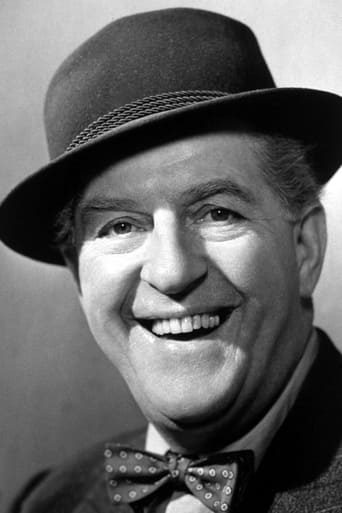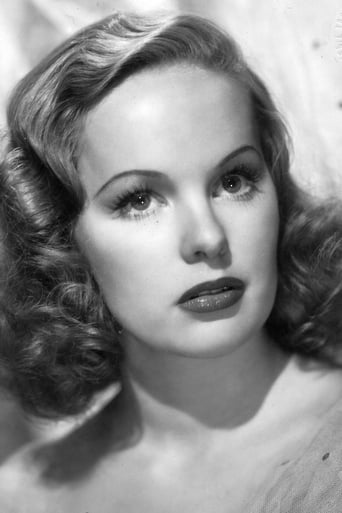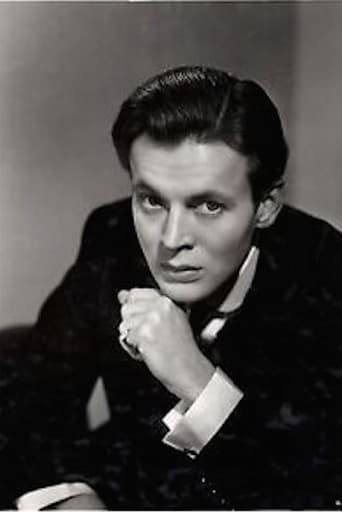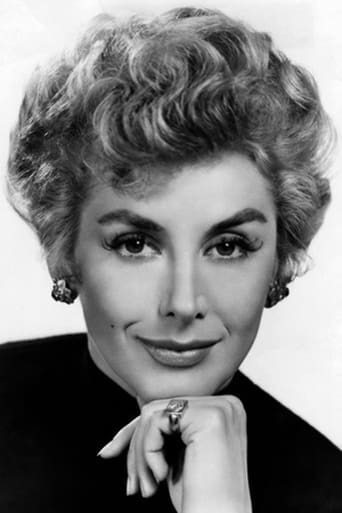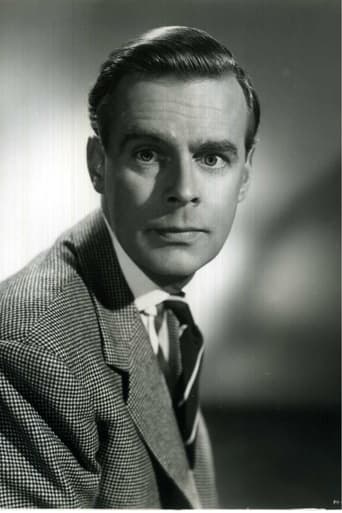Vashirdfel
Simply A Masterpiece
Chirphymium
It's entirely possible that sending the audience out feeling lousy was intentional
Rosie Searle
It's the kind of movie you'll want to see a second time with someone who hasn't seen it yet, to remember what it was like to watch it for the first time.
cmcastl
Just seen it again after many years, and what now impresses me is a a surprisingly good and sharp script. The script's critique of the negative effects of TV addiction is excellent and prescient for its day, considering how early this film was made into the march of TV (1953) which would eventually supplant film as the medium for our diet of social media.Incidentally, my parents had a set for the 1953 British Coronation, amongst the first in their neighbourhood and thus became that day a focal point for all those who did not yet have a TV.The Miss Lonelyhearts segment would work today in the way it could manipulate all those Mr. Lonelyhearts out there. Kay Kendall was never so alluring.Having said that, TV is today as important to me as it is to anyone else, at least where news and documentaries are concerned. There are, probably, some good effects in the ubiquity of TV, but I personally wonder what the final balance is. It is interesting that the science fiction writer Arthur C. Clarke observed how, along with Marshall Mcluhan, the Canadian media commentator, that TV has created a 'global village' and even the poorest of households will own a TV, even in the worst of slums or favelas, as they are known in South American. Indeed, I suspect that the social glue holding Latin American countries together are its soaps. That may hold good for the West, too. But back to the film; the ensemble acting is excellent, with Stanley Holloway as its focal point, but, goodness me, how gorgeous a young Barbara Murray and Peggy Cummings are, how they brighten the dreariness and blight of a post-war Britain all too slowly recovering from its wounds.
mappman728
One of the Ealing comedies that doesn't get written about very often and not one of the best. However, it does offer an insight into the film industry's fear of television in the early 1950s, with some fairly barbed satire at the expense of the "box in the corner" and its uncritical audience. Th plot seems to be a hybrid of the stage play on which the film was based - television wreaks various degrees of havoc on three households - and a surreal narrative link showing that the Devil (aka Mr Lucifer) is behind television's growth. Apparently he likes to invent something new to make each generation miserable. Television in the 1950s and - if a sequel threatens - mobile phones for the 2000s. Incidental pleasures include an appallingly tatty Christmas pantomime, with desperate performers facing a meagre and hostile audience, and a square dance involving television dancers, friends and neighbours gathered round the television, and a bunch of street urchins and ragamuffins, some of whom look uncannily like Margaret O'Brien in the Halloween sequence of "Meet Me in St Louis". It also convincingly depicts the grime and dilapidation of post-war London, with characters forced to live in cramped basements and seedy bedsits.
malcolmgsw
This film ,made in 1953,is largely forgotten.It is a misfiring satire.At the time this film was released TV was about to make a substantial impact on cinema audiences as a result of the Coronation.By 1960 cinema audiences had dropped by two thirds from their post war high and thousands of cinemas were closing.Also,just 3 years after this film was made Ealing studios themselves were closed and purchased by the BBC.Also those music halls that had managed to struggle on finally closed their doors in the late 50s.So i am afraid that Michael Balcon was just spitting in the wind by trying to tell people that television was a bad influence.The film is quite entertaining ,particularly Gordon Jackson playing very much against type.
ShadeGrenade
Interesting curio from Ealing Studios. Based on a play by Arnold Ridley ( better known as 'Private Godfrey' from 'Dad's Army' ), 'Meet Mr.Lucifer' is a whimsical fantasy warning of the potential dangers of television. In 1953, few people in Britain had sets, but its popularity was on the rise, and film makers such as Michael Balcon were worried enough to make a movie of this kind. Stanley Holloway is 'Sam Hollingsworth', a drunken actor reduced to playing 'The Devil' in a tatty pantomime version of 'Robinson Crusoe', and even that is doing poor trade as audiences are staying at home and watching the goggle box.After a few drinks during the interval, Sam goes back on stage, only to be knocked unconscious as he tries to use the trapdoor. He imagines he is in Hell itself, where the Devil - also played by Holloway - claims that the wheel and the telephone were both inventions of his to make everyone's lives miserable, and the television is his latest idea. But it is not doing the job quick enough, so Sam is recruited as Satan's helper.We then follow the lives of a group of people as a television set changes their lives for the worse. First up is 'Mr.Pedelty' ( Joseph Tomelty ) who gets a set as a retirement gift. He becomes obsessed by the thing, watching anything and everything. When there is a dancing programme on, he invites people in off the street and gives them free drinks ( all obtained on credit from his local pub ). As the debts mount, he decides he has had enough and so bequeathes it to a young couple ( Jack Watling and Peggy Cummins ). He is studying to become a chemist, and her television viewing habits spoil his concentration. To save their relationship, they pass the set on to Hector McPhee ( Gordon Jackson ), who becomes infatuated by a beautiful singer ( Kay Kendall ) known only as 'The Lonely Hearts Girl'...It is not the programmes that come under attack, but the medium itself. Its power as a force for good is barely mentioned, making this a bit one-sided. My biggest complaint is that there is too little of Stanley Holloway. The film is only really engaging when he is around. Also, the satire - if that's the right word - could have been stronger. I suppose television had not been around long enough for a major assault on the medium to be justifiable. Fun cameos from Ian Carmichael and Joan Sims, plus celebrities of the time such as Gilbert Harding and MacDonald Hobley. Eric Rogers - of 'Carry On' fame - did the music, and some of it was reused in 'Carry On Spying' ( 1964 ). Just before the end credits roll, the film takes a pot-shot at 3-D movies!
